Playing games with lives at stake Hockey executives lack understanding, skills to deal with sex abuse
Read this article for free:
or
Already have an account? Log in here »
To continue reading, please subscribe:
Monthly Digital Subscription
$0 for the first 4 weeks*
- Enjoy unlimited reading on winnipegfreepress.com
- Read the E-Edition, our digital replica newspaper
- Access News Break, our award-winning app
- Play interactive puzzles
*No charge for 4 weeks then price increases to the regular rate of $19.00 plus GST every four weeks. Offer available to new and qualified returning subscribers only. Cancel any time.
Monthly Digital Subscription
$4.75/week*
- Enjoy unlimited reading on winnipegfreepress.com
- Read the E-Edition, our digital replica newspaper
- Access News Break, our award-winning app
- Play interactive puzzles
*Billed as $19 plus GST every four weeks. Cancel any time.
To continue reading, please subscribe:
Add Free Press access to your Brandon Sun subscription for only an additional
$1 for the first 4 weeks*
*Your next subscription payment will increase by $1.00 and you will be charged $16.99 plus GST for four weeks. After four weeks, your payment will increase to $23.99 plus GST every four weeks.
Read unlimited articles for free today:
or
Already have an account? Log in here »
Hey there, time traveller!
This article was published 05/11/2021 (1503 days ago), so information in it may no longer be current.
There have been several moments over the past week, as we face the public fallout of the Chicago Blackhawks sexual assault scandal from 2010, that I was reminded just how far we still must go in making sports, and broader society, a safer place for all.
Nowhere was that message more clear than what we witnessed Monday from NHL commissioner Gary Bettman in an hour-long media availability to discuss the current crisis facing his league.
In addressing the scandal, which included a coverup of the sexual assaults of two players by then-video coach Brad Aldrich, Bettman treated the questions as if he were on trial. He carefully stickhandled around any claims of wrongdoing, in a setting that allowed him to dodge whatever inquiry he pleased.
At a time when Bettman should have shown compassion, he opted for arrogance.
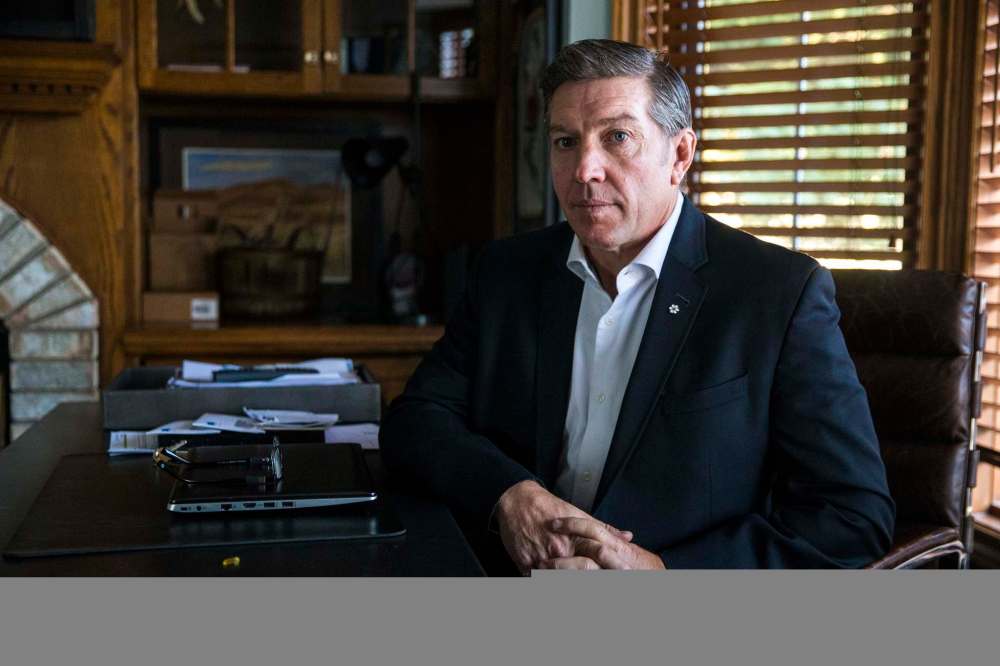
He challenged the credibility of sexual assault survivor Sheldon Kennedy, downplayed the toxic culture of hockey that has allowed predators to infiltrate it at all levels and offered a defence of some of the key players in the scandal — arguments built on ignorance to a problem that has been centre stage ever since Kennedy was brave enough to come forward in 1996 to detail the years of sexual abuse inflicted upon him by disgraced junior hockey coach Graham James.
Having spent three years investigating sexual abuse in hockey for a Free Press investigation titled A Stain on our Game that was published last December, I couldn’t help but think of all the experts, people who have dedicated their lives to tackling sexual abuse and its devastating effects, and the countless hours I spent leaning on them to better understand the underlying issues of a serious and complex topic.
I wondered aloud as I watched Bettman downplay the role of Winnipeg Jets general manager Kevin Cheveldayoff, who was the Blackhawks assistant general manager at the time of the assaults, and absolve him of any wrongdoing based strictly on his position within the organization.
Ignoring the moral and ethical duty we all have to speak up when confronted with serious allegations of this nature — a commitment that was firmly established when Kennedy first spoke of his years-long abuse decades ago — Bettman smugly stuck to his guns. He strongly argued Cheveldayoff was not in a position to challenge his bosses and therefore had no authority to further investigate the matter.
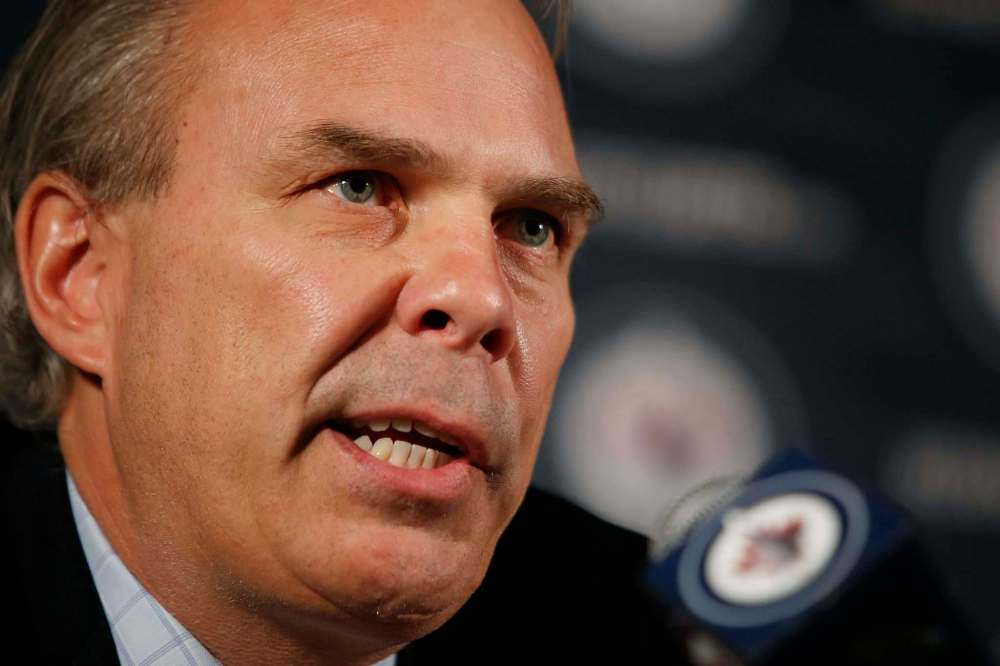
This, despite Cheveldayoff admitting in an investigation commissioned by the Blackhawks that during the May 23, 2010, meeting he fully understood the seriousness of the allegations, which included unwanted advances by Aldrich; was made aware of the players in question; and that an investigation would be conducted.
In 2013, Aldrich, who was able to quietly resign from the Blackhawks three weeks after the meeting, was sentenced to nine months in jail after he pleaded guilty to criminal sexual conduct with a minor while volunteering as an assistant coach at a high school in Houghton, Mich. In a separate lawsuit still being handled in court, the victim blames the Blackhawks for what happened to him.
I asked Bettman if any of his claims around sexual abuse and his defence of Cheveldayoff were rooted in expertise provided by professionals that have made sexual violence their life’s work. The commissioner ignored the question, reiterating once again that Cheveldayoff was powerless in his role.
When Cheveldayoff faced the media the following day in a news conference, which also included Jets co-owner Mark Chipman, both men showed far more tact than Bettman. But while Chipman emotionally shared his personal connections to sexual abuse and vowed to do the hard work involved in furthering education within the Jets organization, and Cheveldayoff wished he could have done better by his victims while at the same time skirting any real responsibility for his inaction, it was again clear whose voices were missing.
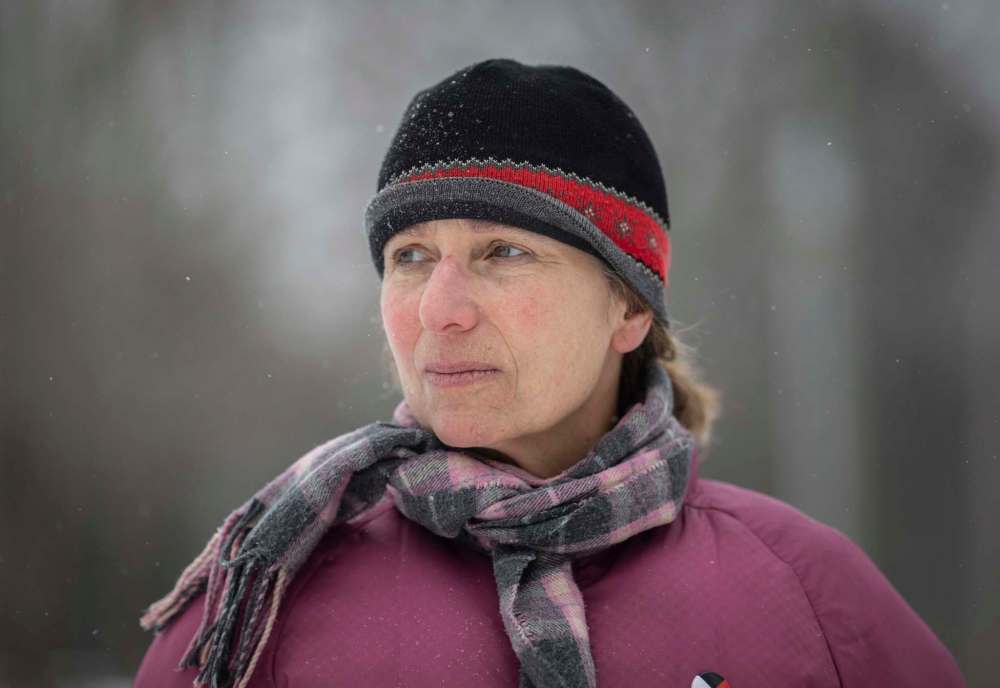
Voices like Laura Robinson, a dogged journalist who in the early 1990s set off on a journey across Canada with the goal of pulling back the curtain on a junior hockey culture that she knew was rife with abuse. In her book Crossing the Line: Violence and Sexual Assault in Canada’s National Sport, Robinson documents one story after another, detailing heartbreaking anecdotes of the abuse of power and exposing the institutionalized violence in hockey and the carnage it leaves in its wake.
Many of those stories she documented involved, directly and indirectly, coaches and players who went on to work and play in the NHL.
While Robinson’s work helped shed light on the abuse occurring in Canadian hockey communities from coast to coast, it did little to curb the problem. She was resisted by top officials in the Canadian Hockey League (the umbrella league consisting of the Western, Ontario and Quebec Major Junior hockey leagues), all of whom claimed the sport wasn’t as bad as she was suggesting.
Voices like Jay Johnson, a University of Manitoba professor who has dedicated more than 25 years to studying hazing in hockey and the severe toll abuse, sexual or otherwise, has on players. He spoke of a with-us-or-against-us attitude that perpetuates throughout sports and makes it difficult for bystanders and victims to report abuse safely and confidently.
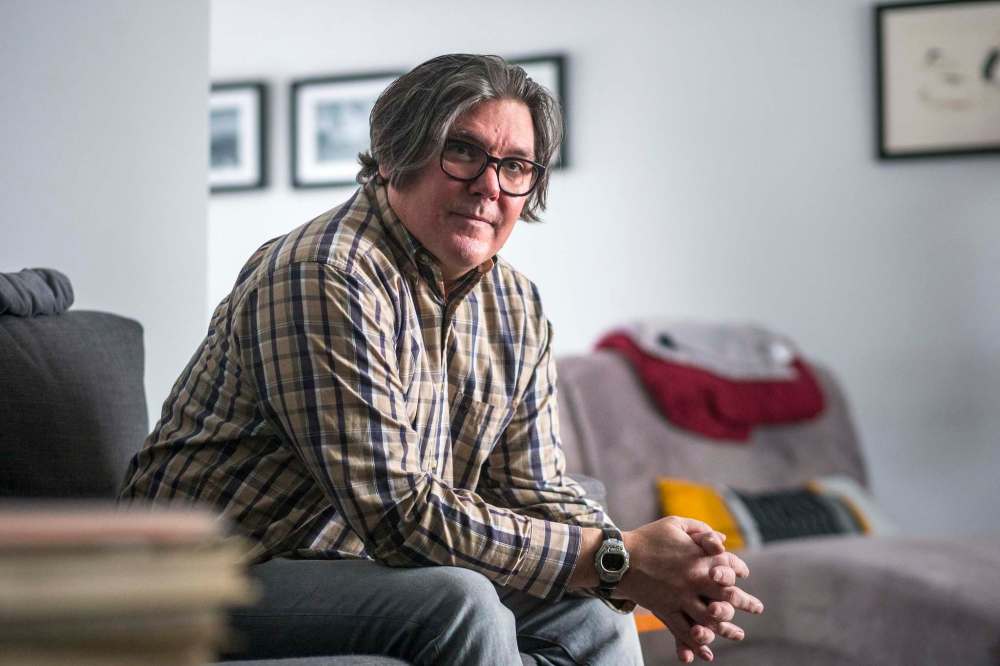
Johnson, who filed an expert report on hazing, initiations and rites of passage that is being used by lawyers representing former CHL players in an ongoing class-action lawsuit, noted the stakes have never been higher and warned that sports should invest in creating safer environments for their athletes now or risk paying for it, quite literally, later.
I thought about Gretchen Kerr, a University of Toronto professor who has spent much of her professional life studying the maltreatment of athletes and advocating for safer avenues to report abuse within sport. Kerr has been steadfast in her pursuit to have sports organizations adopt third-party reporting systems that would make way for independent oversight when it comes to dealing with incidents of abuse.
“You would think that the transparency around this would be a good business decision,” she told me months ago. “But they very much want to hang on to their autonomy and their control in these types of decisions.”

Around the same time, Mike Bruni, a Calgary-based lawyer who has been in hockey boardrooms for decades and has seen the sometimes troubling underbelly of a sport that’s ingrained in Canada’s cultural fabric, told me if a culture change is to happen in hockey, it starts with leadership at the top. Bruni, who currently heads the board of directors nominating committee for Hockey Canada but was once its top executive, recalled delivering a swift message to the board after finishing his term as chair in 2013.
“One of the things I said was, ‘You guys aren’t going to exist in five or 10 years unless you change,’” he said. “You don’t compromise your principles or your values to satisfy the market, but you’ve got to recognize what the market is and what the market is demanding, and I think hockey has lagged behind in so many ways.”
Finally, I thought of Christy Dzikowicz, the executive director at Toba Centre for Children and Youth, Manitoba’s only child-advocacy centre. In an opinion piece for the Free Press following the release of A Stain on our Game, Dzikowicz begged the question: where is the outrage?
What’s been clear the last week is there is plenty of anger, as people come to grips with yet another seemingly unexplainable scandal in the sport many of us grew up loving. This has created division among the public, leading to tense debates that view the issue of sexual abuse through a lens of black and white, when there’s always plenty of grey.
It’s OK to expect or demand more from people in leadership positions, while at the same time being empathetic to their situation.
It’s OK to expect or demand more from people in leadership positions, while at the same time being empathetic to their situation. These two things are not mutually exclusive. Just like you can strive for accountability, challenge stories and ask tough questions without demanding vigilante justice.
Faced with the uncomfortable topic of sexual abuse and feeling like you have little opportunity or responsibility to act — either immediately or weeks, months or years later — the harsh reality is many in Cheveldayoff’s position would have acted in a similar way. That’s part of the problem.
What’s even more concerning, though, is we’re allowing hockey men, people who have little knowledge about sexual abuse and its damaging, long-lasting effects dictate their next steps, while ignoring the voices who have been trying for decades to show them the way to a safer and more inclusive experience for all.
jeff.hamilton@freepress.mb.ca
twitter: @jeffkhamilton
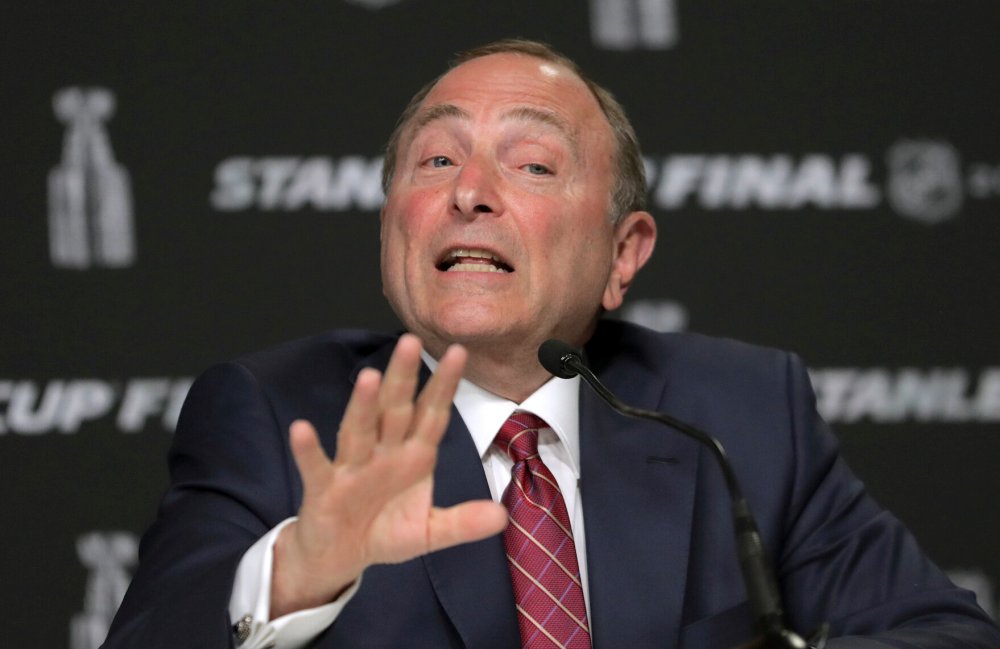

Jeff Hamilton
Multimedia producer
After a slew of injuries playing hockey that included breaks to the wrist, arm, and collar bone; a tear of the medial collateral ligament in both knees; as well as a collapsed lung, Jeff figured it was a good idea to take his interest in sports off the ice and in to the classroom.
Our newsroom depends on a growing audience of readers to power our journalism. If you are not a paid reader, please consider becoming a subscriber.
Our newsroom depends on its audience of readers to power our journalism. Thank you for your support.






